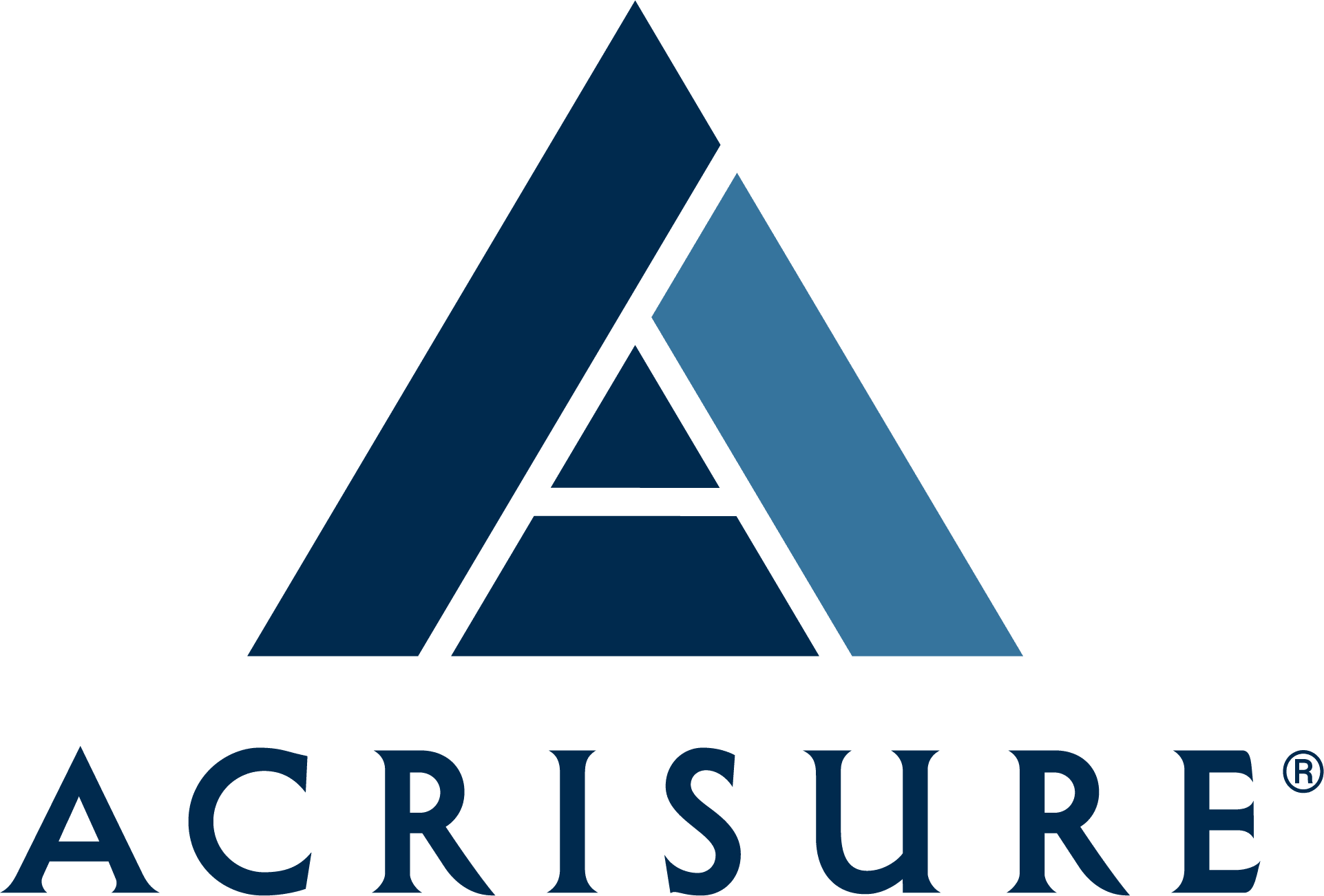
Episode 10:
How to Secure the Best Worker's Comp Price

Featuring Pete Child
Pete Child has been working as a Client Advisor for our Burlington Office for the last 4 years. He brings his knowledge and expertise in selling workers compensation policies and helping businesses lower their premiums on their Workers Compensation coverage. There is a lot more that goes into this line of coverage than just state limits and regulations and at H&B, we can help you control just how much you spend on Workers Comp.
Transcript
Ryan: [00:00:37] Welcome everybody to another episode of Got You Covered, presented by Hickok and Boardman Insurance Group. I’m your host, Ryan Lee, a client advisor with the firm. Today we’re talking about one of the areas of expertise for our firm, but also kind of the basics. We’re going to break it down. So whoever you are listening out there, if you don’t really know much about worker’s comp, you’re going to get a little sense of how it’s priced, how it’s generated and, you know, how you can go wrong with your pricing. Things aren’t all set perfectly the way they should be… Bringing in a good friend of mine and coworker Pete Child today. He’s a client advisor with the firm, as well. Joined the year just before I did. And pleased to have him on the podcast. Pete, welcome. [00:01:25][47.8]
Speaker 2: Thanks, Ryan. [00:01:27]
Ryan: No problem, man. So before we get into worker’s comp pricing and class codes, that sort of stuff. Real quick for the listeners out there, why don’t you share a little bit about your background and how you even got into insurance in the first place? [00:01:43]
Pete: Sure. Sure. Yes. We actually graduated from St. Lawrence University at the same time, and I took a couple of years and played professional hockey. Played in the minor leagues for a couple of years before I figured out what I really wanted to do and originally ended up in orthopedic sales and worked for a company called Smith & Nephew. And we sold your hip and knee replacements and trauma products. So, you know, broken bones – I was your guy in the operating room to help fix and work with the doctors and residents and all that sort of stuff. And it was great. It was a great first job, you know, a lot of hard work, a lot of hours. But you know, I was getting a little further along in life and was looking for something a little bit more stable, maybe outside of the, outside of the hospital, if I could. And you know, I grew up, grew up in Vermont, grew up in Chittenden County and had some connections to Hickok and Boardman and met with these folks. And you know, as they say, I guess the rest is history, too. And it’s been a few years now and it’s just been just been a great experience, there are great people here and just a great culture. So it’s been it’s been a really great change for me the last few years here. [00:02:55]
Ryan: I agree. I’ve definitely had a great experience also. I just gotta go on a side note real quick because I’d be remiss in not mentioning this. You said you and I both graduated from St. Lawrence, I remember, at the same time, I remember you and I were both in a neuroscience class together. [00:03:16]
Pete: Couple of neuroscience major selling insurance. This is exactly exactly how we drew it up. [00:03:21]
Ryan: Well, it’s crazy. But you know, I think most people in insurance find their way to it without thinking that’s what they’re going to do when they’re in college. So definitely fond memories of that. And what? Ah, Professor Joe Erlichman big hockey guy too. [00:03:38]
Pete: Yeah, club hockey coach. He was great. Yeah, yeah. [00:03:41]
Ryan: [00:03:42] Great times. OK, well, anyhow, so you know, when we talk about workers’ comp and I’m in meetings with, you know, business owners all the time, and I often get the question from people of, you know, how how could you get me a better rate on on worker’s comp? Isn’t that all standardized? Isn’t that just like one rate that everybody has to follow, et cetera, et cetera? And so it [00:04:10]
Pete: “The state sets the limit, nothing different, nothing changes.” Yeah, yeah, exactly. [00:04:14]
Ryan: So, you know, maybe if you could just quickly, you know, break down why that’s not the case and how different policies can have different policy rates.
Pete: Yeah, sure. Sure. So, you know, it’s actually one thing that Hickok and Boardman – it’s sort of the backbone of our agency, I think is the is the worker’s comp and then the services that go along with that. And you know, you come here and the training that Hickok and Boardman offers the employees is just phenomenal. And one of the things that we lead with on the training side, as well as the worker’s comp, and it’s sort of a common misconception that it’s just, you know, at the rate is the rate and it is what it is. And, you know, going through through lots of trainings in different states and working with different carriers and then obviously working a lot of different businesses, there’s a lot of folks out there, even folks that are in insurance that don’t necessarily understand the differences in workers’ comp and what it means to us or to me.
Worker’s comp is sort of the one area that you can actually control, you know, your mod number, which is generated – one being the average – but your mod number is generated based on what sort of the expected based on your payroll, what the expected claims or losses are going to be versus the actual claims and losses that you have on your policy. And so as that mod number changes, goes up and down, ideally, you have it below one, that gives you better pricing. It’s a number that gets factored into that, into that equation of how they generate the premiums.
So from our standpoint, you know, that’s one piece of it and you want your mod number to stay low. But the other area that that you know, people need to really consider and think about an area that we focus on is the different class codes that you have within your worker’s comp policy. And then there’s another there’s another piece called your loss cost multiplier, your LCM, and those are two other items that basically get factored into your worker’s comp. And so, you know, one construction company may have a whole slew of different class codes on their policy. So they may have carpentry, they may have office employees, they may have guys doing concrete, they may have drivers. So all of those payrolls should fall under different class codes. And and one thing that we’ve learned over the last few years and meeting with different businesses that some of them don’t necessarily understand that, that they may sort of try to lump everything into one class code and it’s misclassified. They may be overpaying for their worker’s comp or underpaying, and then you can get hit with an audit if it’s not done properly. And then the other the other piece of that, and I think one piece that’s really not understood, certainly by businesses, necessarily and I think some other agents out there that you have this LCM.
And so basically, each carrier has different ways to rate your worker’s comp. So in Vermont, you… Each carrier – so like a Travelers’ or a Liberty Mutual or a Vermont Mutual – all of them have different LCM numbers that are registered with the state. And that number can range from, say, a point nine to one point five to one point nine to a two point zero. And those are other numbers that get multiplied and get factored into your rate when they’re creating your premiums. And so it’s a it’s a tool that we’re able to use and having, you know, having a good understanding of how those LCMs work and how the carriers are licensed in each state – if you, if you know that you have a client or you’re trying to get a new piece of business and that client or that that prospect has an LCM that has a one point nine, then you know that there is better options out there than 1.9, if you’re trying to, you’re trying to keep your premiums low and you want to be you want to be in the lowest tier possible. So if you can, you can take all of that same payroll and you’ve got all the same class codes and you go from multiplying that against a one point nine to a point nine, you’re going to see some significant savings there.
So that’s a piece that a lot of folks don’t necessarily understand in the way that we approach this and with our clients is, you know, that’s why we have our safety services. If you get involved with our safety groups and you, you know, you really focus on being a safety-first organization, then that gives us as client advisers, another tool to go to the carriers and say, “Look, these guys are doing everything right. Let’s let’s try and bump them up a tier.” And so that instead of being in that one point nine tier, they’re in the 1.5 tier and that that, you know, depending on how much payroll you have, those can be huge savings. You know, I’ve been in a number of meetings where I’ve gone in to to a prospect and sat down with them and see that they are in a in a really high tier for their LCM. And then you dig into their their payrolls a little bit more and you see that while all these things are misclassified, so you may have you may have a whole handful of payroll that is just folks that are working in the office, but instead it’s it’s in a different class. So that makes it look like they’re carpenters or they’re doing some sort of manufacturing, which is a much higher rate. So the idea being that, you know, when we take on new clients and and as we service our current clients, we we do sort of an audit internally to make sure that they have all the right class codes listed to make sure that they’re in the most aggressive tier for their LCM, that they can be sure that we’re getting the best pricing.
You know, the other the other piece that that is involved in this too, is there’s the carriers have the ability to credit your policies. So it’s in it’s again, these are different in every state. But in Vermont, you can get up to 25 percent credit onto your policy. And so it’s another piece, you know, another negotiating tool that we have in our bag of tricks to up to go to a carrier again and say, “Hey, you know, these guys really care about their safety programs. They’ve got a safety person on staff or they’re working with our team here to to improve their safety. You know, let’s let’s try and get some schedule credit on to this policy.” And then, you know, as Hickok & Boardman continues to expand into other states, you know, Ryan, obviously, you’re in New York, which has its own set of rules. So we kind of need to be experts in and all things worker’s comp, including those the class codes that are the loss cost multipliers, the ability to add schedule credit. We need to sort of understand those things as they relate to all the different state regulations. So it’s it’s important to know that we’re doing that in New York, New Hampshire, Massachusetts, and where we’re going. We’ve we’ve sort of got the expertise to to dig into those, dig into of those numbers and make sure that we’re sort of getting the best pricing possible for our clients. [00:11:23]
Ryan: It’s it’s so true. And you know, you just outlined all those different ways in which a worker’s comp price can change. And you know, the the thing that kept coming back to my mind was, you know what you said about, are you a safety-first organization? Well, OK, you know, that’s that’s number one, right? You’ve got to decide for yourself as an owner or a leader for the business, is that something you want to invest in and you want to take time to really, truly be a safety first organization? OK. And then part two. How are you going to do that? What resources can you do on your own? And then where do you have limitations, because you’re trying to run your business right? And that’s where our services from a loss prevention, safety training or the worker’s comp licensed adjuster side, you know, we can we can fill the gaps. And like you were saying, Pete, you know, leverage that into some benefits on the pricing side. But that was great explanation, thank you for that. [00:12:27]
Pete: Yeah, no. I mean, it’s a really high level overview and I think sort of the you know, as you know, when I went to my my new producer training school, you know, we got to the worker’s comp portion and you see other agents sort of roll their eyes and they don’t, you know, they don’t necessarily think much of the worker’s comp piece. And it is what it is. But you know, to me, you know, coming from Hickok and Boardman, it’s it’s to me, worker’s comp is really the most important piece is the really the one area that you can really have control over in terms of your your pricing for your insurance. And if you can invest your own resources and time, you know, as a business into your into, you know, making it a safe workspace, you know, the amount of money that you can save over time is tremendous. And I think I think everybody who’s who owns a business or who’s been who’s had to deal with insurance in a business has some sort of story about a bad year or bad claims. And then their mod number went through the roof and the pricing accordingly went through the roof. And so it’s you know, to me, it’s it’s a hugely important piece. It’s why we sort of lead with it at Hickok and Boardman, you know, it’s something that’s important to us and really the one key area that I think we can control and help our clients control. [00:13:42]
Ryan: It’s so true. Well, thanks. Thanks for your time, Pete. Well, we’ll definitely have to have you on the podcast again and share more of your knowledge with all the listeners. Any parting words for the listeners? Any final thoughts? I’m kind of putting you on the spot, but I tend to do that to everybody who comes on the podcast. [00:14:02]
Pete: No, yeah, no, no, no final words on my end, and you know, it’s it’s it’s really a great organization to be a part of, and I think anybody that that works with Hickok and Boardman or knows the folks around here understand that it’s just a great place to be. You know, we care about your business, and I think that’s sort of the bottom line. And you know, we’re, you know, we’re still a local company and in a lot of ways and we care about our clients and hopefully they care about us in turn, and it’s typically a great relationship. So it’s just a really great place to be. [00:14:35]
Ryan: [00:14:37] Awesome. This has been another episode of Got You Covered, presented by Hickok and Boardman Insurance Group. We’ll see you next time. Thanks for listening! [00:14:37]
